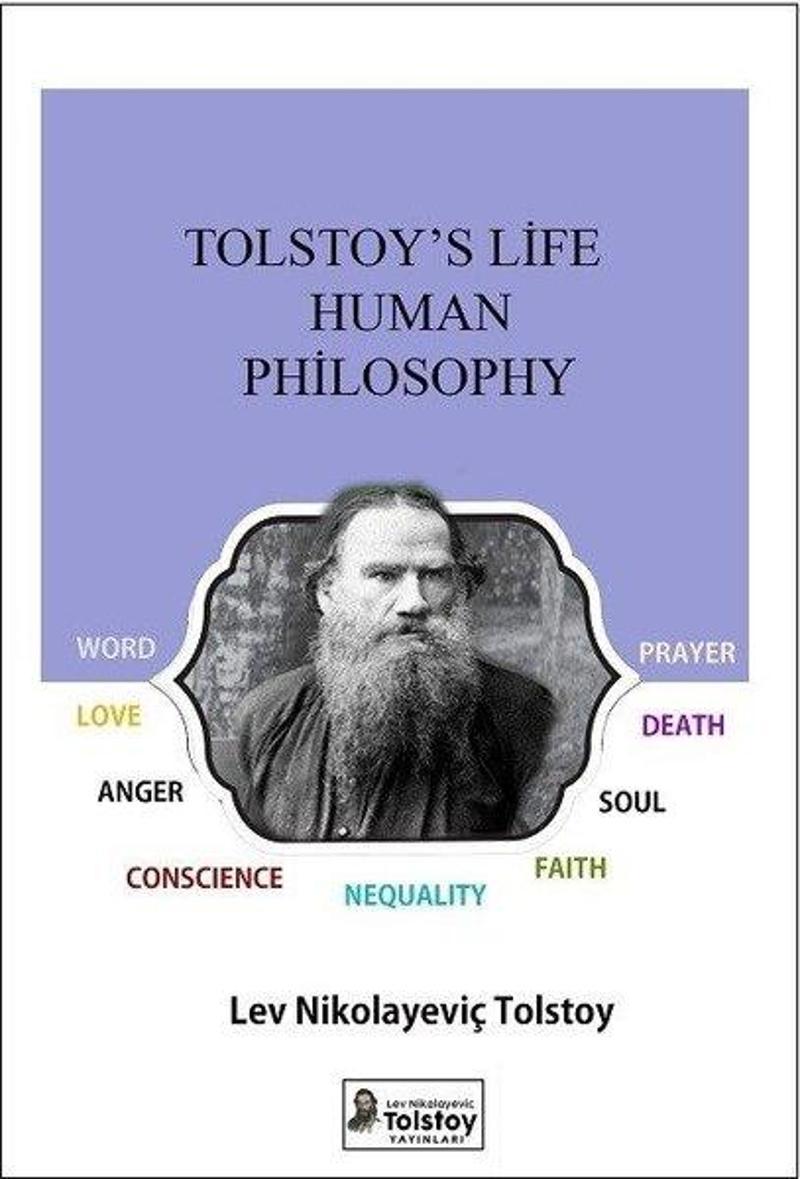Tolstoy's Life Human Philosophy Lev Nikolayeviç Tolstoy
Diğer Satıcılar(1)
The great writer and thinker Tolstoy, who has the qualification of being one of the two most read authors in the world, is one of the rare pen that has attracted the attention of Turkish readers since the years he lived and won his appreciation. Tolstoy's works, both with his ideas and with his literary works, are still among the bedside books of qualified readers.
If a person continues on his way by saying 'My job is to love God and people, no matter what positive and negative experiences they experience; this person's life is happy, peaceful and grateful. The secret to solving life is “knowing yourself”. Know yourself, you will be successful in life's purpose. Know yourself to radiate light, energy and happiness around you. It is up to you to turn every negative into a positive. Don't forget! You are the “honorable person. Then may “Tolstoy” be your companion on this journey you set out to find yourself. The work, which consists of nine books, has been simplified and brought together.
1.Tolstoy examines the concept of Love and Conversation by referring to the holy texts and the ideas of great thinkers, and invites his readers to a happy life in a climate of peace and belief.
2.Tolstoy, Prayer comes before the reader in a different style than the other books in the same series. The author, who adopted the style of persuasion by telling parables in the Eastern tradition in his work called Dua; emphasizes the importance of prayer, surrender and patience through the interrogations of a mother whose child has died.
3. Tolstoy, The Word, The Word, just like the truth in Yunus's lines: 'Push wart for word / short head for word', it turns towards the uniting and separating aspect of the word, the value of the word. The work in which concepts such as speaking, discussing, speaking abusive words and being silent are presented to the reader with a moralistic perspective; It is also very important in terms of pointing out the attitudes that mature individuals should adopt in a mature society. In the book, which consists
of seven chapters, Tolstoy does not neglect to refer to the words of great thinkers who have a place in the history of world thought, while presenting his ideas.
4. Tolstoy, like a religious scholar, tries to draw the boundaries of the concepts of Faith and Faith and to embody these concepts. Expressing that faith and belief are concepts that are formed in the self when a person understands what he is in the world for, the author engraves the relationship of true faith with life into the mind and heart of the reader in his work, which consists of nine small chapters.
5. Tolstoy, Conscience confronts the reader with a different style than the other books in the same series. While presenting the advice and wise words of thinkers who lived in different centuries and different countries to the reader with a selection understanding, he expands the inclusiveness of these words with his own thoughts. The work, which gives a value and meaning to life through concepts such as patience, evil and goodness, truth and faith, is an effort to illuminate the eternal issues that people ask themselves.
6. Tolstoy, Spirit raises the cornerstones of his faith above the thoughts of great ideas. Emphasizing the idea of the soul of the essence of man in the context of soul and body, the author underlines that people live with the soul and depicts the quality of the soul, which is an abstract concept, in his own words.
7. Tolstoy invites the reader to a peaceful life climate by revealing the intellectual foundations of the idea of equality, equality and fraternity of people.
8.Tolstoy. In the book consisting of seven chapters of anger; It focuses on the inconveniences of wishing for the evil of others, the consequences of anger, the importance of being humble and the necessity of staying away from bad habits. As in his other works in the same series, Tolstoy presents to the reader the views of intellectuals who grew up in previous ages, in different geographies and left traces in the history of thought, with their own views. Hz. The author, who makes use of two hadiths belonging to the Prophet Muhammad, gives clues to people, society, peace, salvation and living a meaningful life in this work.
9. Tolstoy deals with Death, which is the greatest truth of mankind since eternity, and the issue of death, which he has difficulty in making sense of. The author, who emphasizes that death is not non-existence and that life does not end with death, by referring to the holy texts and the ideas of great thinkers, attaches a special importance to Eastern religions and thinkers in his work. Best wishes for good reading...
(Tanıtım Bülteninden)
